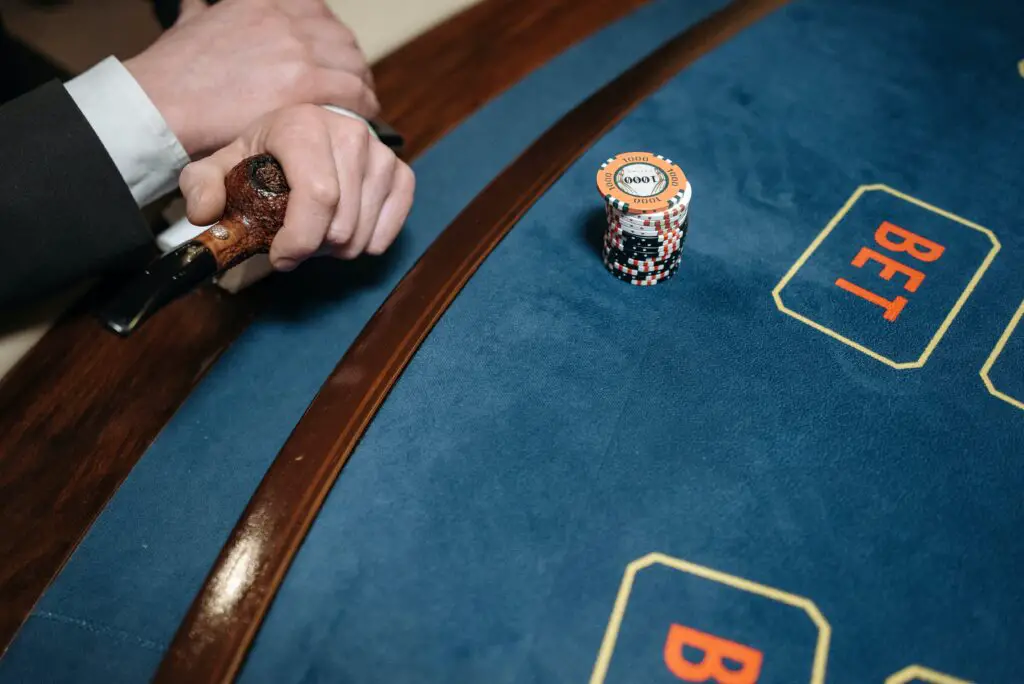Understanding the Vernacular:
Decoding “Bet”
In the rich tapestry of human language, words often take on a life of their own, evolving beyond their literal meanings to become markers of culture, identity, and camaraderie. Among the lexicon of contemporary slang, one word that has surged in popularity, particularly among younger generations, is “bet.” Its usage might leave some scratching their heads, wondering what it signifies and why it has become so ubiquitous in modern conversation. To unravel this linguistic enigma, let us embark on a journey through the nuances and subtleties of this seemingly simple word.

What Does It Mean When Someone Says Bet?
Straight to the point, “bet” is a versatile term encapsulating agreement, affirmation, or understanding, often used in casual dialogue. When someone says “bet,” they’re essentially expressing acknowledgment, agreement, or a willingness to accept a proposal or statement. Think of it as a condensed form of saying, “I understand,” “I agree,” or “Consider it done.”
In its simplest form, “bet” serves as a confirmation of plans or agreements. For example, if a friend proposes grabbing lunch together at noon, responding with “bet” indicates your acceptance of the plan. It’s a succinct way of saying, “I’m on board with that idea.”
Beyond its literal meaning, the word “bet” has taken on additional layers of nuance in various contexts. In some instances, it can denote confidence or assurance in the outcome of a situation. Picture a friendly wager between peers over a sports match. One might say, “I bet the Lakers will win tonight,” expressing not only a prediction but also a degree of certainty or conviction in their belief.
Moreover, “bet” can convey a sense of trust or reliance. When someone says, “I got you, bet,” they’re essentially saying, “You can count on me,” or “Consider it taken care of.” It implies a sense of dependability and assurance, reinforcing the bond between individuals.
In essence, the word “bet” serves as a linguistic Swiss Army knife, adaptable to a myriad of conversational scenarios. Its brevity and flexibility make it a favorite among the digital natives of today’s interconnected world, where efficiency and clarity reign supreme.
Exploring the Origins of “Bet”
Like many facets of language, the origins of “bet” can be traced back to African American Vernacular English (AAVE), where it gained traction in urban communities before permeating mainstream discourse. In its early usage, “bet” emerged as a colloquialism within African American communities, often employed as a slang term for “sure” or “definitely.” Over time, its usage expanded beyond racial and cultural boundaries, becoming a staple of contemporary slang across diverse demographics.
The evolution of “bet” mirrors the broader phenomenon of linguistic appropriation and diffusion, where words and phrases originating from marginalized communities are co-opted by mainstream culture. While some may argue that this dilutes the authenticity of the term, others view it as a testament to the dynamism and adaptability of language in reflecting societal shifts.
The Cultural Significance of “Bet”
Beyond its linguistic utility, “bet” carries cultural significance, embodying principles of solidarity, mutual understanding, and authenticity. In an age marked by rapid technological advancements and digital communication, establishing genuine connections amidst the noise can be a daunting task. Yet, simple expressions like “bet” serve as touchstones of authenticity, fostering a sense of camaraderie and rapport in an increasingly fragmented world.
Moreover, the widespread adoption of “bet” underscores the influence of youth culture on language evolution. As digital natives shape the contours of modern communication through memes, emojis, and slang, words like “bet” serve as cultural signifiers, reinforcing a sense of belonging and shared identity among peers.
Navigating the Nuances of “Bet”
While “bet” may seem straightforward on the surface, its usage is not without nuance. Like any linguistic tool, its meaning can vary depending on tone, context, and inflection. For instance, responding with a drawn-out “beeeeet” may convey skepticism or incredulity, signaling a lack of genuine agreement or understanding.
Furthermore, the proliferation of internet culture has spawned variations and spin-offs of the word “bet.” From “big bet” to “no cap, bet,” the lexicon continues to evolve, reflecting the ever-changing landscape of online discourse. Each iteration carries its own connotations and shades of meaning, adding depth to the tapestry of contemporary slang.
Embracing the Evolution of Language
In the grand symphony of human communication, language serves as a living, breathing entity, constantly evolving and adapting to reflect the zeitgeist of the times. Words like “bet” remind us of the dynamic nature of language, where meanings shift, boundaries blur, and new expressions emerge to capture the essence of human experience.
As we navigate the ever-changing currents of linguistic innovation, let us embrace the richness and diversity of language in all its forms. Whether it’s a casual “bet” exchanged among friends or a heartfelt affirmation of trust and solidarity, the power of words lies not only in their literal meanings but also in the connections and emotions they evoke.
So the next time someone says “bet,” pause for a moment to appreciate the depth and complexity behind this seemingly simple word. In its brevity lies a world of meaning, waiting to be unpacked and explored in the boundless landscape of human expression.

